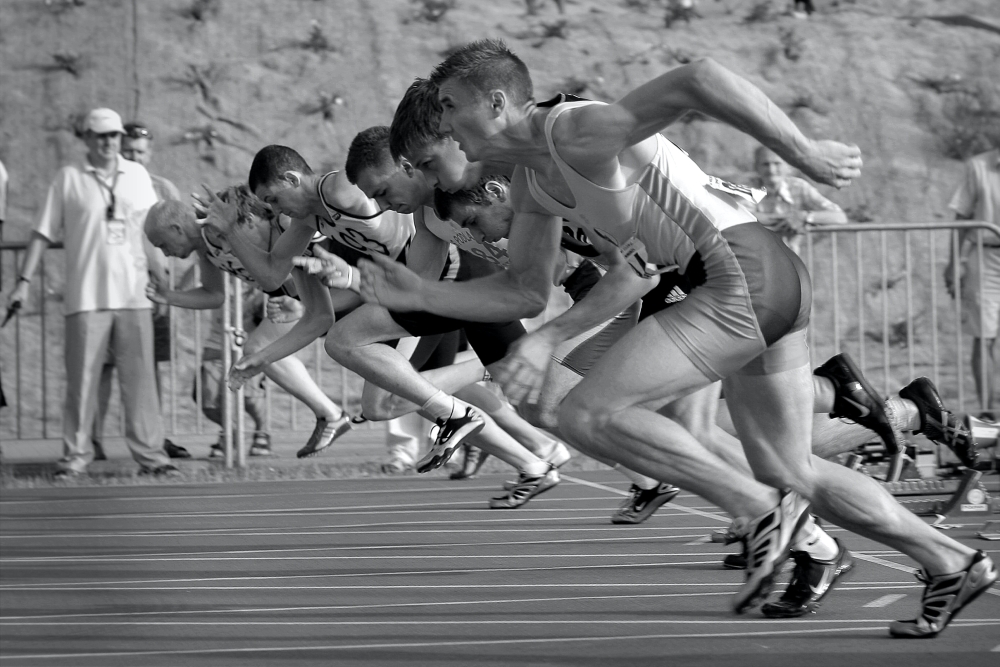Although the term “sports medicine” may seem like it’s tailored to the specific needs of professional athletes, it’s not always the case. Indeed, sports medicine can benefit a lot of people, such as those who exercise regularly, have an active lifestyle, or are seeking treatment for exercise- or sports-related injuries.

Healthcare providers who specialise in sports medicine focus on providing a variety of treatment methods that relieve symptoms, as well as changes in habits and behaviours that support the healing improvement of one’s performance. Here are some of the things that these medical practitioners do:
Sports medicine for diagnosis and treatment of related injuries
Sports medicine specialists, like sports physicians, orthopaedic doctors, and orthopaedic surgeons, identify and address a wide array of injuries—from common sprains and strains to more complex musculoskeletal issues. Their expertise ensures that patients receive prompt and tailored medical interventions to facilitate a quicker and more effective recovery.
Injury prevention
Healthcare professionals in this field work to reduce the risk of injuries. They provide individuals with targeted exercises and training regimens designed to strengthen muscles, improve flexibility, and enhance overall endurance. Additionally, sports medicine specialists provide education on proper warm-up techniques, equipment use, and lifestyle choices. All of these empower patients to make informed decisions that contribute to injury prevention.
Rehabilitation and recovery
In the unfortunate event of an injury, sports medicine professionals guide individuals through the rehabilitation process. In particular, physical therapists and athletic trainers collaborate to design personalised rehabilitation programmes, aiming to restore function, mobility, and strength. Through a combination of therapeutic exercises, manual techniques, and other rehabilitation modalities, individuals can regain their physical capabilities and return to their lifestyles with confidence.
Performance enhancement
One aspect of sports medicine is to enhance athletic performance. Biomechanists, exercise physiologists, and performance psychologists work together to optimise various aspects of an individual’s fitness routines, refining movement patterns by designing targeted training regimens. This approach ensures that athletes and sports-oriented individuals can continually strive for peak performance and recover faster in case of injuries.
Who are the sports medicine professionals?

Sports medicine is enriched by a diverse array of specialists, each contributing their unique expertise to ensure patients receive comprehensive care tailored to their specific needs. Let’s have a look at eight sports medicine specialists and get a better understanding of their roles:
Sports medicine physicians
Sports medicine physicians are medical doctors with specialised training in the diagnosis and treatment of sports-related injuries and conditions. These experts provide comprehensive medical care to address the unique health concerns of their patients. They have extensive knowledge of musculoskeletal issues, exercise physiology, and sports science.
Orthopaedic doctors
An orthopaedic doctor is a medical professional who specialises in the musculoskeletal system. Their expertise includes surgical and non-surgical treatments for bone and joint issues. Orthopaedic doctors also play a crucial role in managing sports-related injuries, such as fractures, dislocations, and ligament injuries.
Physical therapist assistants
Working under the guidance of physical therapists, physical therapist assistants contribute to the rehabilitation process by assisting in the implementation of rehabilitation programmes. They ensure that recovering individuals receive hands-on support during therapeutic exercises and other modalities aimed at restoring function and mobility.
Dietitians
Sports dietitians focus on the unique dietary needs of individuals. They develop personalised nutrition plans to support training, recovery, and overall performance. Thus, these specialists play a vital role in boosting an individual’s energy levels, muscle recovery, and long-term health.
Kinesiologists
Kinesiologists study human movement and biomechanics, and their expertise is essential in preventing and managing sports-related injuries. They analyse movement patterns, design exercise programmes, and work towards optimising athletic performance while minimising the risk of injuries.
Chiropractors
Chiropractors specialise in the treatment of musculoskeletal issues, particularly those related to the spine. In sports medicine, they provide manual manipulation and adjustments to address joint and spine problems, promoting optimal function and mobility.
Podiatrists
For the diagnosis and treatment of foot and ankle conditions, athletes can rely on podiatrists. They specialise in addressing issues related to gait, foot mechanics, and lower extremities. Their knowledge in their field ensures an athlete’s stability.
Certified athletic trainers
Certified athletic trainers are healthcare professionals trained in the prevention, assessment, and management of sports-related injuries. They work directly with athletes, providing them with immediate care on the field, conducting injury evaluations, and designing injury prevention programmes.
When to see a sports medicine specialist?
Seeking the expertise of a sports medicine specialist is crucial not only for athletes, but also for individuals involved in sports and those who exercise for personal fitness. Sports medicine professionals have the knowledge, experience, and tools to help people reach their goals, whether it’s improving their body’s resilience against injuries or enhancing their performance in their chosen sport or workout. Here are other reasons why one would see a sports medicine specialist.
Sports-related injuries
Whether it’s a sprain, strain, or more severe musculoskeletal issue, seeking prompt medical attention ensures an accurate diagnosis and a tailored treatment plan. Sports medicine physicians and orthopaedic doctors specialise in addressing these injuries and helping individuals navigate the path to recovery.
Joint or muscle issues
When dealing with persistent joint or muscle issues, such as discomfort, limited range of motion, or swelling, consulting a sports medicine specialist is advisable. These professionals possess the expertise to identify the root cause of these problems, offering targeted interventions to alleviate pain and enhance function.
Nutritional guidance
Seeking nutritional guidance is essential for individuals looking to optimise their performance, support their training, and enhance recovery. If you’re unsure about their dietary needs, a consultation with a sports nutritionist can provide valuable insights. Those who need personalized nutrition plans due to certain physical conditions or to achieve certain goals may also benefit from a consultation with a dietitian.
Rehabilitation after surgery
For those who underwent orthopaedic surgery related to a sports injury, rehabilitation is a critical phase of recovery. Sports medicine specialists, including physical therapists, play a key role in guiding them through the rehabilitation process, providing a structured and effective recovery plan to help regain strength and mobility post-surgery.
Sports medicine isn’t just about improving the performance of athletes. It’s also about the prevention, treatment, and rehabilitation of injuries related to sports, physical activity, and exercise. Thus, individuals can always turn to a specialist who’s in this field to provide them with a programme or treatment to get them back to or enhance their active lifestyles.